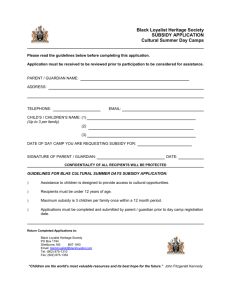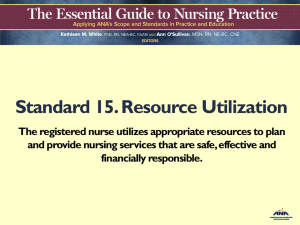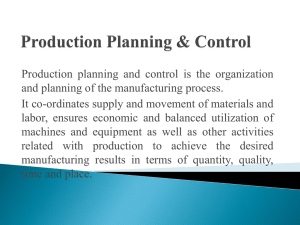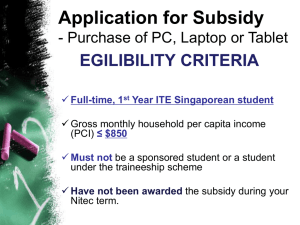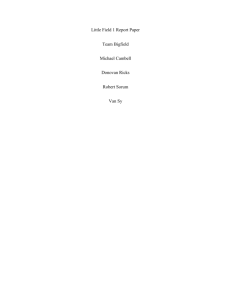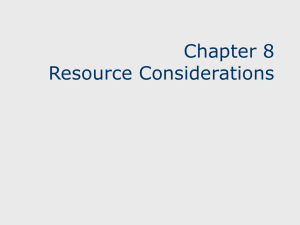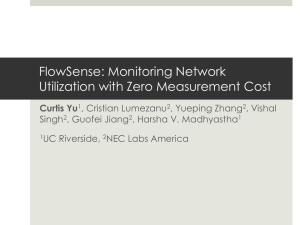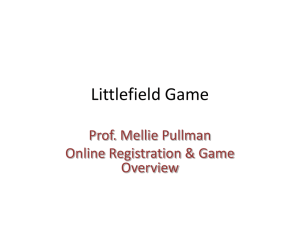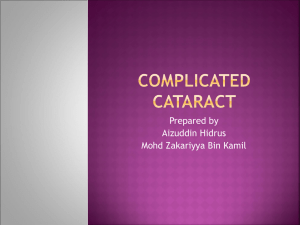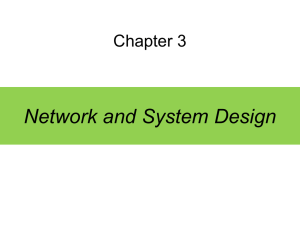Elements of a Business Plan - Ensuring Financial Viability for an Eye
advertisement
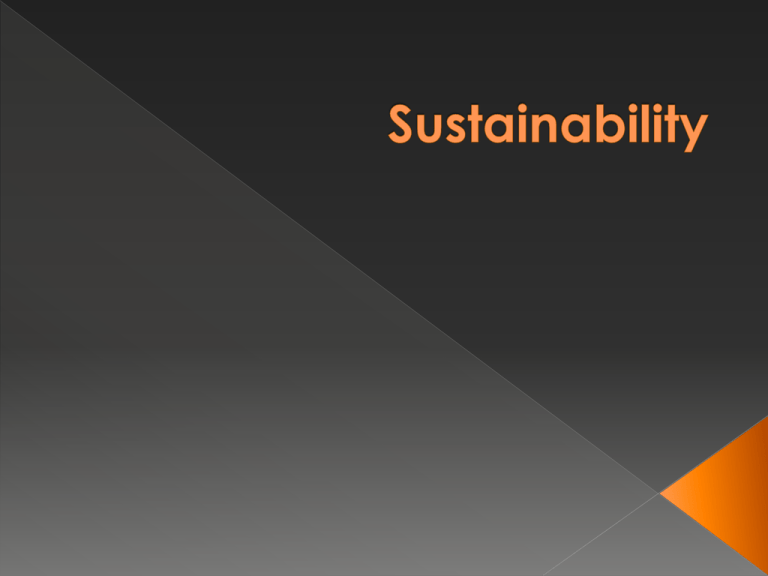
Leadership Core Services Community Support Financial Self Sufficiency Programme Design (leading to model development) Building capacity (Infrastructure & HR) Commitment by Leadership Finances (internal & external) Gap analysis: Assess unmet need in the community Assess current utilization of Infrastructure and Resources Set Targets: Based on community need Lead to optimum utilization Strategic approaches to achieve targets Financial viability: what it takes to provide services/achieve targets and how to meet the expenditure Assumptions about the environment Assumptions about the Mission Assumptions about the core competence Applying it to the “Present” and “Future” Relevance Standardisation of processes and protocols Ensure service uptake levels Quality of diagnosis & treatment Patient comfort Outcome Helps in: Instrumentation Training Patient flow Quality improvements Patient’s understanding & co-operation 10 Performance Addressing challenges Monitoring changes & variations Review effectiveness of the strategies & introduce necessary changes to programme implementation Cost Containment Improve Resource Utilization e.g. Surgeries/Surgeon Operations/bed/year Fixed Cost Revenue Generation Implement Low-cost Technologies Self Generated e.g. Sutures, Eye drops, IOL/Specs, Maintenance e.g. Rich patients, Support services, Spectacles e.g. Govt, Local NGO, Community e.g. Multilateral, Bilateral, INGO Patient Generated Revenue Subsidy National Subsidy Other countries Variable Cost Other Sources Subsidy/Donation Self-reliance Continually refine pricing & management processes Sustainability Process Ext. Dependence Diversify the portfolio Revenue > Cost of eye care services Maximize Revenue Tension: Social obligation Minimize costs Tension: Quality & Patient Satisfaction Scale: Investment in infrastructure, size of the facility and staffing are the major determinants Efficiency Optimum utilization of the infrastructure Seasonal variations in patient load Staffing & Staff utilization pattern Productivity Logistics driven good inventory management group purchasing for better price Good materials management (reduce wastage in storage & pilferage) Cost engineer your clinical protocol Eliminating unnecessary investigations, procedures & medications Hospital’s perspective: Hospital Charges Medication ?? Patients’ perspective: Cost of care Transportation Food Lost wages Cost of accompanying person Family visits Follow-up visits Restrictions Location: 80 km, west of Madurai Service area population • Theni District : 1 million • City Population : 111,500 • Kerala districts : 3.2 million 55% of population in rural area Total Beds: 63 + 100 • Paying : 40 (22 %) • Free walk-in : 23 • Camp : 100 Services offered: Cataract; Refractive Errors; Glaucoma; Medical Retina & Lasers Human Resources: Ophthalmologists Residents Clinical staff Administrative staff :2 :7 : 37 : 29 Patient Fee Strucutre (US$): OP Consultation: Paying: 1.00; Walk-in: Free Cataract: • Camp: US$ 0 (- US$ 6) • Subsidized: US$ 17 • Paying: US$ 30 - $ 380 All Financial figures are in US$ Paying Cataract Surgeries Fixed Costs Variable Costs Total Cost Unit Cost Fee/Subsidy per case Contribution per case Total Surplus 2,008 $ 150,630 $ 40,965 $ 191,595 $ 95 122 $ 27 $ 54,216 Free Hospital Camp Subsidised 1,841 3,707 $ 10,958 $ 10,958 $6 12 $6 $ 11,046 32% Total 7,556 $ 150,630 $ 35,305 $ 87,228 $ 35,305 $ 237,858 $ 10 $ 32 14 $4 $ 14,828 $ 80,090 Capital cost: Cost of Land, Building, major equipment, etc Recurring cost: Ongoing cost of providing the services Fixed Cost: Costs that have to be incurred regardless of the level of activity Variable cost: Costs that vary directly with the level of activity Unit cost: (Fixed cost + variable cost) per unit of service
